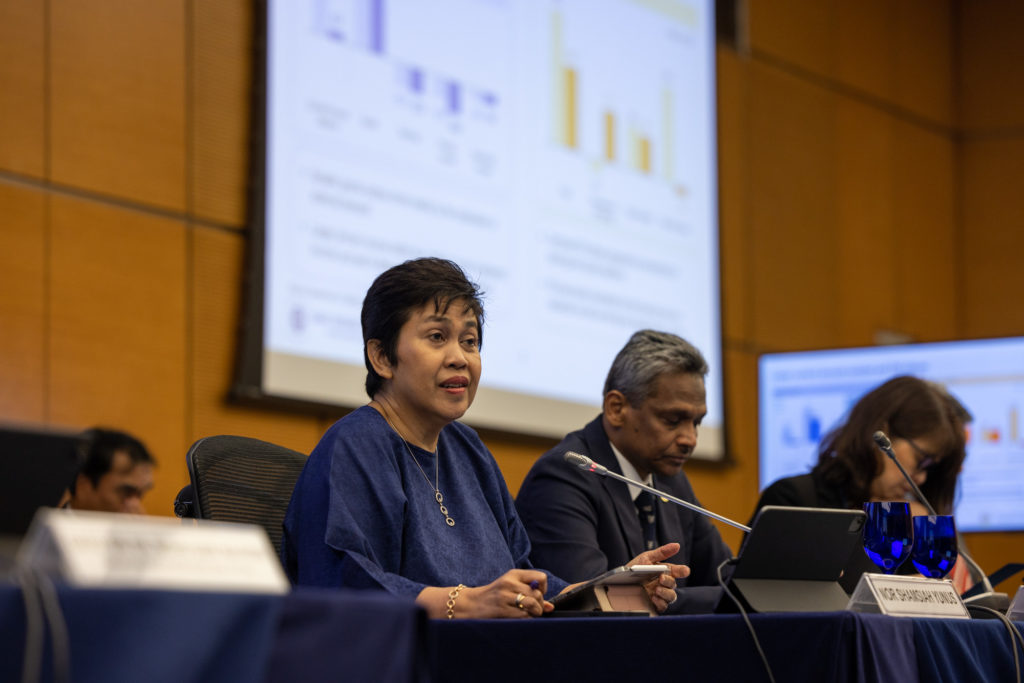
Mohd Yunus during a press conference in Kuala Lumpur on Friday, May 12.
KUALA LUMPUR, May 12 – Malaysia’s economy expanded by 5.6 percent in the first quarter of this year, a slight drop from the 7.1 growth seen in the last quarter of 2022, Bank Negara Malaysia announced today.
In a press statement issued today, the central bank said the growth in 2023 was driven mainly by
domestic demand.
“Further improvement in the labour market, with strong growth in employment and continued expansion in wages, have supported private consumption spending. Meanwhile, investment activity was underpinned by capacity expansion and continued implementation of multi-year projects.”
The country’s inbound tourism continued to recover, lifting services exports and partially offsetting the slower goods export growth, it said, adding that on the supply side, the services and manufacturing sectors continued to drive growth.
On a quarter-on-quarter seasonally-adjusted basis, the economy grew by 0.9 percent (4Q 2022: -1.7 percent).
At a press conference to announce Malaysia’s economic growth and financial development on Friday, Governor Tan Sri Nor Shamsiah Mohd Yunus said risks to Malaysia’s growth outlook were relatively balanced.
She said growth was expected to remain resilient in 2023, anchored by firm domestic demand.
“Despite global headwinds, the Malaysian economy is projected to expand by 4.0% to 5.0% in 2023, driven by firm domestic demand. Improving employment and income as well as continued implementation of multi-year projects would support consumption and investment activity. Moreover, higher inbound tourism activity would lift high-touch services industries.”
Meanwhile, headline inflation during the quarter reviewed trended lower to 3.6 percent (4Q 2022: 3.9 percent), mainly due to the moderation in core inflation and lower RON97 price.
The decline in core inflation (1Q 2023: 3.9 percent; 4Q 2022: 4.2 percent) was largely contributed by selected services. These include telephone and telefax service, food away from home, and personal transport repair and maintenance.
Even as cost pressures, particularly global commodity prices, continued to ease, core inflation remained elevated during the quarter amid continued strength in demand. Price pressures remained pervasive.
The share of Consumer Price Index (CPI) items recording monthly price increases rose to 56.0 percent during the quarter (4Q 2022: 51.2 percent, reflecting in part the price adjustments by firms typically done at the beginning of the year as well as continued price increases for some food-related items.